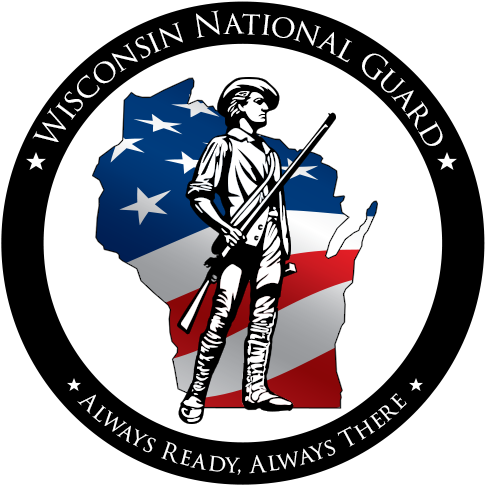WI NATIONAL GUARD RELEASE: REACT Center provides virtual training for deployed Wisconsin Air Guardsmen
Firefighters from the Madison, Wisconsin-based 115th Fighter Wing recently earned Incident Command System 300 certification while deployed to East Africa, thanks to the efforts of Wisconsin Emergency Management (WEM) and its REACT Center at Volk Field, Wisconsin.
According to Fort Atkinson, Wisconsin Fire Chief Daryl Rausch, incident command training is required under the National Response Framework, but not necessarily an individual requirement.
The Wisconsin Air National Guard’s Tech. Sgt. Matthew Dykstra, deployed as assistant fire chief with the 768th Expeditionary Air Base Squadron in Niger, Africa, said the incident command system is a fire department’s “bread and butter.”
“The 300-level course was designed to address larger-scale incidents, and forces our members to think about the bigger picture outside of our career field,” Dykstra said. “By training our members how to handle large issues, they are even more capable in handling the day-to-day emergencies.”
Rausch, a former Air Force firefighter, was one of the instructors for this course — the first online offering by the REACT Center, a regional emergency all-climate training and exercise facility. The REACT Center supported the recent PATRIOT 21 disaster response exercise at Volk Field, involving National Guard units from across the nation.
But even though WEM has provided virtual ICS training distance learning since last August, this was a new challenge for the REACT Center, a 15-acre accredited urban search and rescue training center which has regularly provided in-person ICS 300 and ICS 400 training.
“As a training officer for the REACT Center, I deal with multiple command teams from local and national training units,” said Dorothy Bristor, REACT Center training officer. “The coordination for these training events involves a lot of logistics, teamwork and planning to make everything come together smoothly. When I was approached by [Tech. Sgt.] Dykstra to provide a virtual training for his deployed unit in East Africa, I knew there would be some challenges but was excited to see if we could make it work.”
Bristor said her first action was to reach out to her Wisconsin Emergency Management counterparts. Kevin Wernet, WEM state training officer, assisted with the initial planning, then enlisted coworkers to complete the preparation.
“It can be challenging setting up meetings, permissions, providing instructions, troubleshooting tech issues and keeping up with platform updates,” said Stacy Blakemore, an exercise and training officer with WEM. “Our instructors have high standards and have a desire for students to take away valuable skills.”
Mark Twombly from WEM’s Training Bureau helped with course materials and testing the overseas network, among other tasks.
Because some topics are not easily conveyed in a virtual format and not all people are effective virtual learners, Blakemore worked closely with the instructors to ensure the training materials, applied activities and breakout groups were user-friendly. Additionally, parts of the class were tailored to accommodate the reality that the deployed Airmen were not all taking the training at individual workstations.
Dykstra said the 24-hour course was broken into more manageable four-hour blocks of instruction, which better accommodated their mission schedule.
“This allowed students to attend two days a week for three weeks from 2 to 6 p.m. — a timeframe that also worked for the instructors in Wisconsin,” Dykstra said.
Bristor also said the REACT Center did a lot of administrative work to verify the deployed firefighters’ requirements prior to launching the virtual class.
The REACT Center also needed clearance from the 724th Expeditionary Air Base Squadron and Wisconsin Emergency Management to conduct the virtual training — “lots of forms,” Bristor said. Course materials and PowerPoint files were emailed to class participants.
“Backup phone lines were established, activities and the examination process were adapted for the learning environment, and there were quite a few test calls to East Africa the week before class to assess communication capabilities,” Blakemore said. “Overall, it went well.”
“We stayed online with them to ensure there were no technical difficulties,” Bristor added.
Rausch said Internet bandwidth issues somewhat limited the virtual course, “but the students were very willing to adapt to make the class work in the format.”
“Live video conferencing was slow at times,” Dykstra acknowledged, “and students would turn off the webcams when sitting through lecture.”
The communications flight, or section, on base assisted by providing necessary support to run Microsoft Teams for the class.
“Dorothy is the driving force behind the effort,” Blakemore said. “It was an honor to be able to bring ICS-300 training to the 115th Fighter Wing firefighters.”
Dykstra said the deployed firefighters’ mission is going well.
“We’ve had the opportunity to hone our current skills and have also gotten out of our comfort zones to further develop,” he said. “We were able to implement an advanced life support ambulance service — the first ever in Air Force Fire Protection history, let alone in a deployed environment.”
Morale is high, Dykstra said.
“It is always difficult to miss out on those beautiful Wisconsin summers,” he noted.
NOTE: This press release was submitted to Urban Milwaukee and was not written by an Urban Milwaukee writer. While it is believed to be reliable, Urban Milwaukee does not guarantee its accuracy or completeness.





















